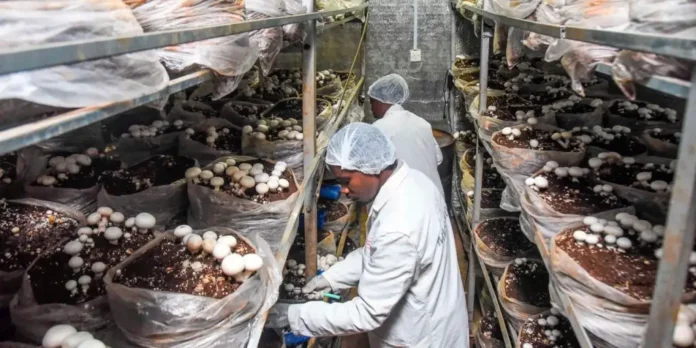When Dennis Macharia started farming five years ago, things didn’t work as anticipated due to various challenges.
On his farm in Matuguta, Githuguri, Kiambu county, Macharia started vegetable farming where he grew cabbage and coriander.
However poor earnings as middlemen dominated the vegetable market, saw him divert to chicken farming, a venture he also abandoned due to costly feeds.
Macharia would then switch to mushroom farming, a venture that has since been successful thanks to motivation from Paul Stamets, an American mycologist and entrepreneur known for his extensive knowledge of fungi cultivation.
“Paul Stamets, through one of his e-books on mushroom farming, triggered my desire to venture into mushrooms,” Macharia said.
He revealed that he invested Sh20,000 into the mushroom-growing business. The farmer transformed an old chicken structure into a mushroom growing house and now boasts three modern growing houses.
Dr King’ori: How I burnt my fingers in Sh. 400,000 watermelon project
Each growing house produces an average of 4,500 pun nets, each weighing 250 grams. Prices for mushrooms at hotels range between Sh180 and Sh200, while supermarkets purchase them for Sh200 for resale.
He sells his produce to high-end hotels, restaurants, and supermarkets, in Nairobi. Macharia attributes his growth to a reinvestment strategy, using proceeds from his business to fuel expansion.
He has implemented cold room chain systems for preserving harvests, particularly when seeking competitive markets.
According to the farmer, one of the biggest challenges mushroom farmers encounter in Kenya is finding a market for their produce.
“When we started, mushrooms were expensive and were largely sold in upscale markets like Westlands in Nairobi,” he says.
Having understood the market landscape, Macharia who eyes the export market says the demand for his produce is locally high such that he cannot meet all his customers’ needs.
He explains that the entire mushroom production cycle takes about 42 days, starting from preparing the substrates and planting of seeds referred to as spawns.
The farmer has however adopted a synthetic system of composting the substrates, which allows him to produce mushrooms year-round. According to him, the process shortens the time needed to prepare substrates from 30 days to just 15 days.
He has designated two rooms for substrates composting which involves mixing crushed wheat straw, which is soaked and supplemented with chicken manure, cotton seed, and gypsum.
Macharia who primarily cultivates white button mushrooms relies on imported spawns from South Africa and Holland.








